Physical Address
304 North Cardinal St.
Dorchester Center, MA 02124
Physical Address
304 North Cardinal St.
Dorchester Center, MA 02124
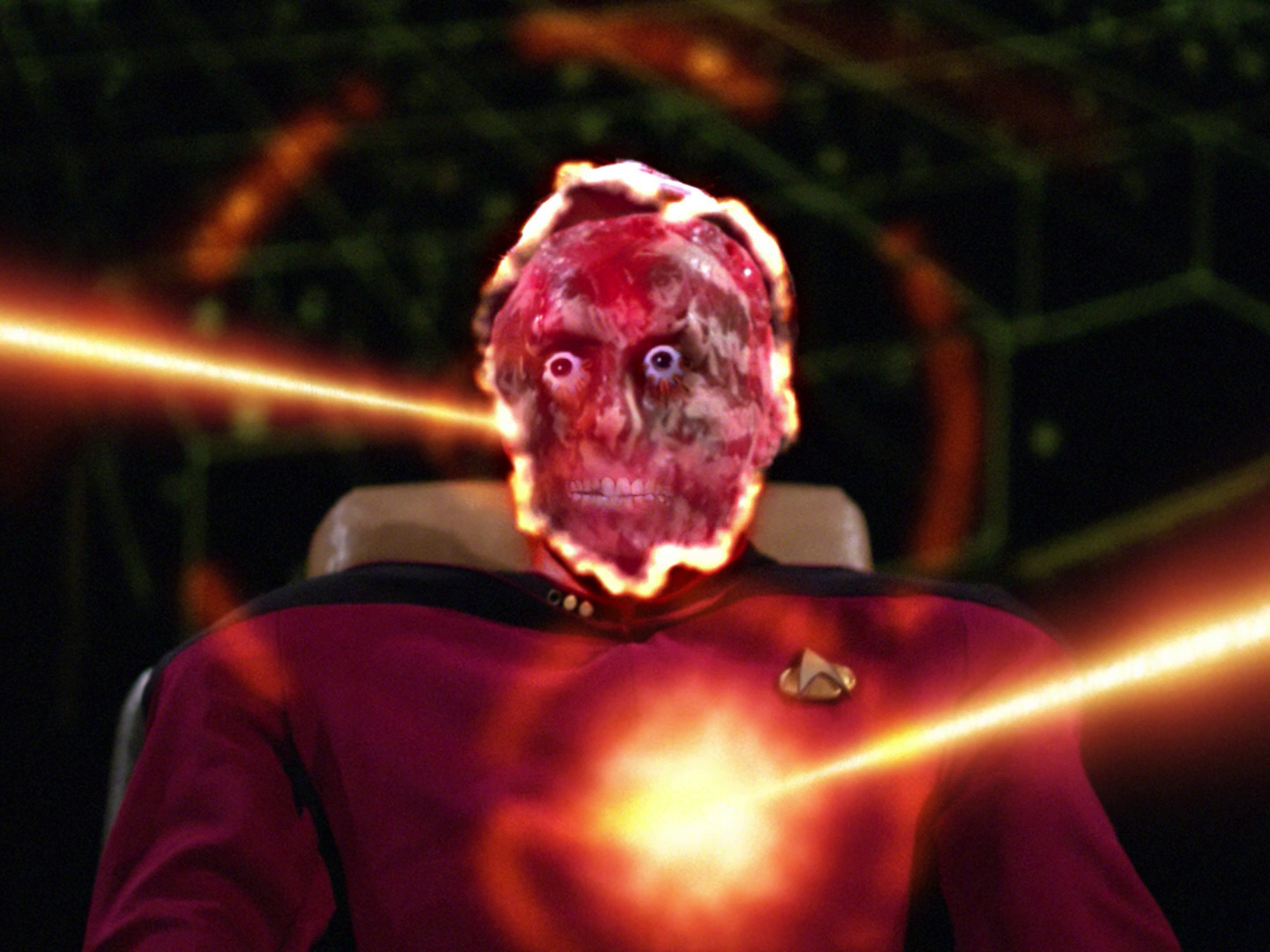
Star Trek: The Next Generation remains one of science fiction’s most iconic series, captivating audiences with its futuristic vision and thought-provoking episodes. Among its many storylines, the “Conspiracy” arc stands out for its suspense, intrigue, and surprising twists. In Season 1, this gripping narrative unfolds over selected episodes, introducing Starfleet officers to a hidden danger lurking within their ranks. Featuring a memorable cast and the chilling character of Remmick, “Conspiracy” leaves a lasting impression with its bold ending—one that has sparked endless fan discussion and theories, especially on platforms like Reddit, about possible sequels and unresolved mysteries.
The Star Trek: The Next Generation episode “Conspiracy” is a standout for its dark and unsettling take on Starfleet, portraying a sinister alien parasite conspiracy at the highest levels of command. Unlike the usual optimistic tone of the series, this episode dives into paranoia and corruption, with senior officers secretly taken over by parasitic aliens plotting to invade the Federation. Captain Picard and his crew uncover this shocking betrayal, leading to tense and graphic confrontations, including some memorable special effects like exploding heads made with raw meat.
This episode is notable for pushing the boundaries of TNG’s usual style, offering a grim commentary on institutional decay that reflected the cynicism of the late 20th century, such as the Watergate scandal and political scandals of the 1980s. While it’s darker and more horror-tinged than most episodes, it remains a bold and memorable part of the first season, even if some viewers find its effects a bit over-the-top or unsettling. Overall, “Conspiracy” stands out as a unique and daring story that challenges the idealism typically associated with Star Trek.
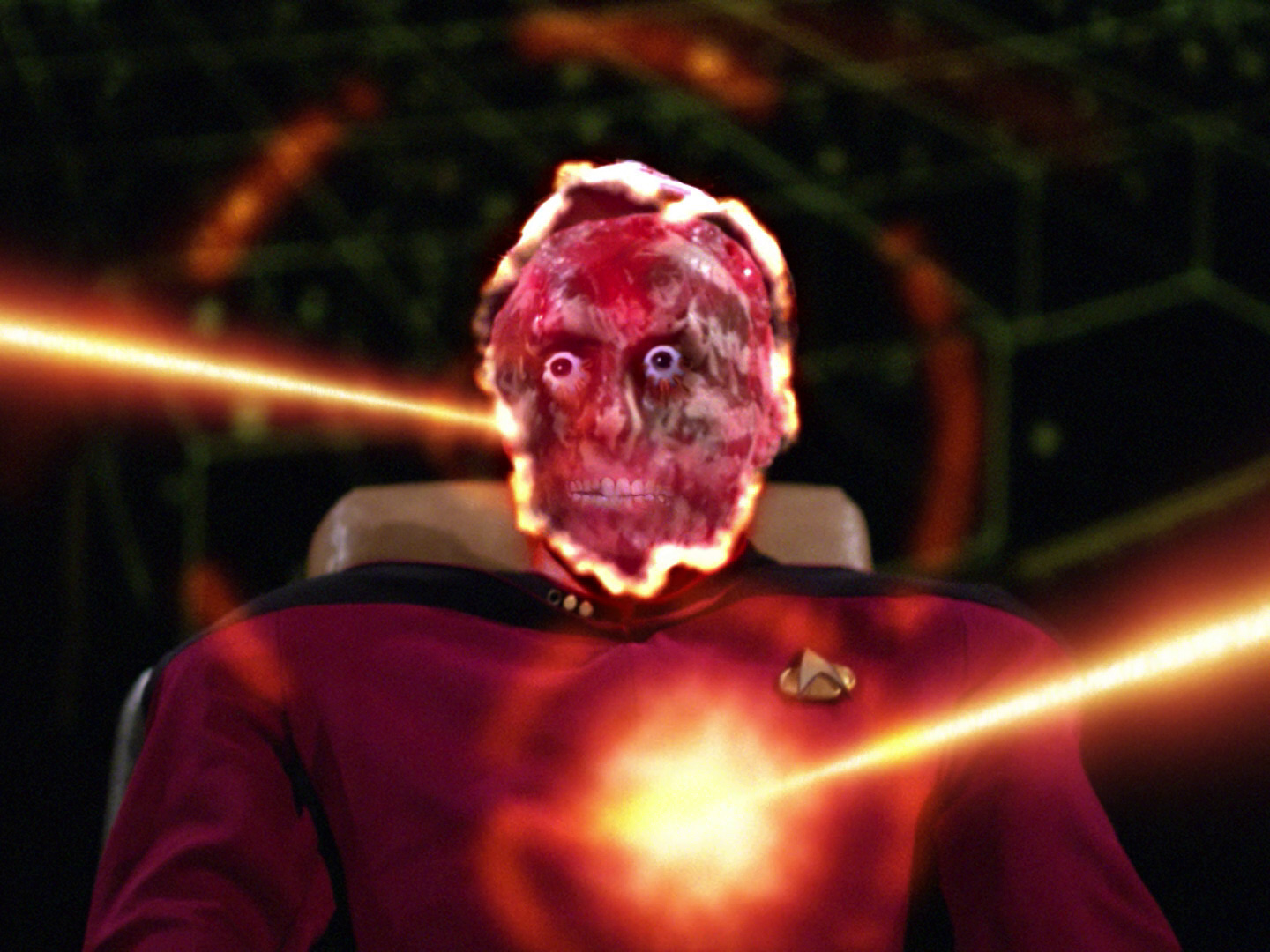
The Star Trek: The Next Generation Season 1 episode “Conspiracy” is a gripping and darker installment that stands out for its bold storyline and graphic effects. It originally aired on May 9, 1988, and was conceived by Gene Roddenberry, later developed into a full script by Robert Sabaroff and Tracy Tormé. The episode follows Captain Picard as he uncovers a sinister conspiracy within Starfleet, where high-ranking officers are possessed by parasitic aliens planning to invade the Federation. This plot was notably darker and more cynical than typical Star Trek fare, exploring corruption at the highest levels of Starfleet and challenging the usual optimistic tone of the series.
“Conspiracy” is praised for its tense atmosphere and unpredictable twists, with standout moments like Picard’s visceral reaction to the alien parasites and the shocking reveal of compromised officers. The special effects, including a memorable exploding head scene, were quite graphic for the time and even caused some controversy, leading to edits or warnings in certain countries. Despite mixed reactions, the episode won a Primetime Emmy and remains a favorite for its intense storytelling and strong performances, especially by Patrick Stewart.
Though the alien conspiracy plot was never revisited, “Conspiracy” remains a unique and memorable highlight of The Next Generation’s first season, showcasing a darker side of the Star Trek universe rarely seen before.
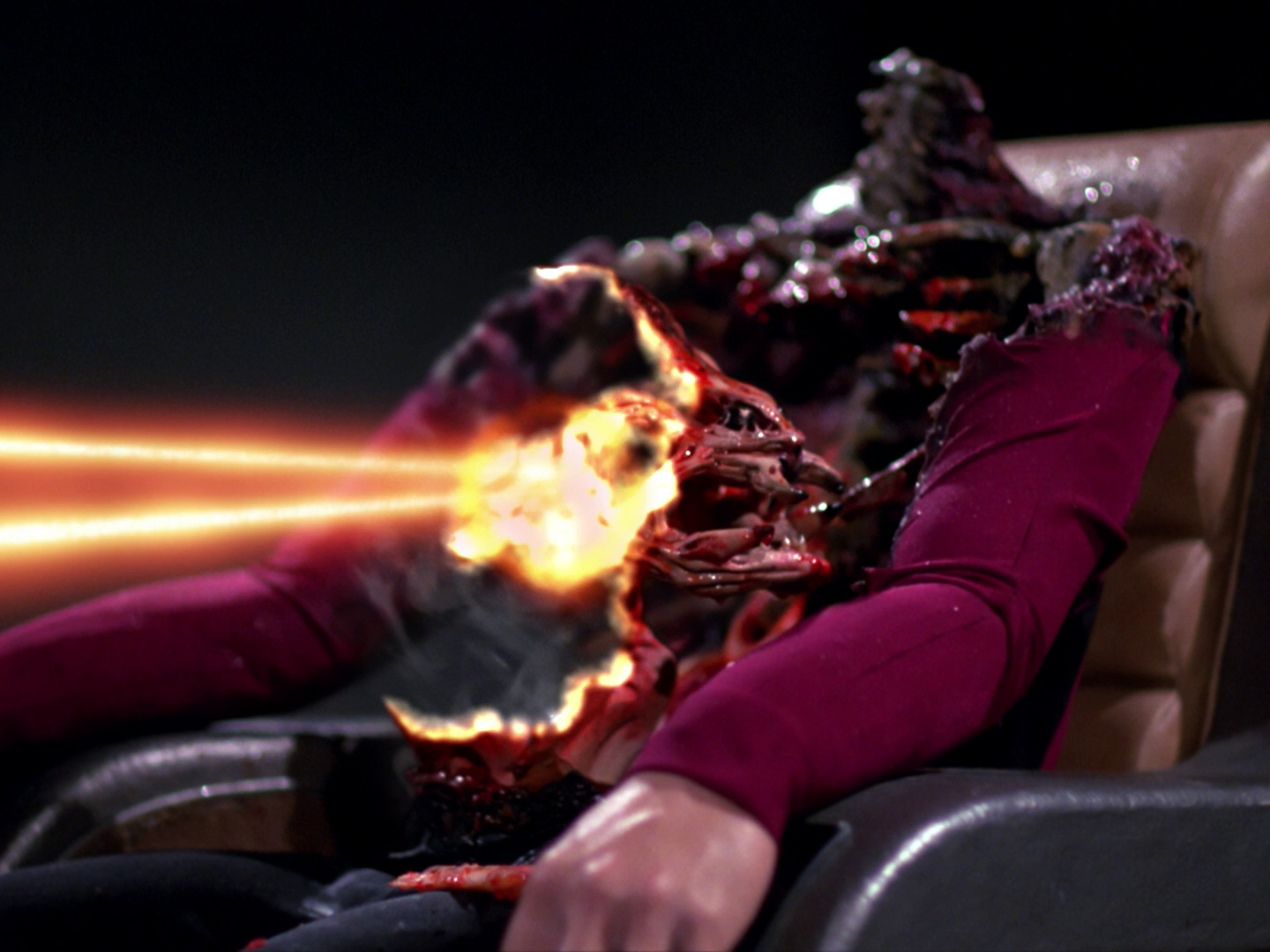
The Star Trek: The Next Generation episode “Conspiracy,” from the first season, stands out as a darker, more intense story than most in the series. It revolves around Captain Picard and the Enterprise crew uncovering a sinister plot where high-ranking Starfleet officers are taken over by parasitic aliens planning to invade the Federation. This episode is notable for its graphic makeup effects, including a memorable exploding head scene, which was quite shocking for the show’s usual tone and even raised concerns about its broadcast suitability.
“Conspiracy” is unique because it portrays the Federation and Starfleet as deeply corrupted, a theme rarely explored in Star Trek. The episode’s grim and paranoid atmosphere contrasts with the generally optimistic spirit of the series, making it a bold and memorable entry. Although it sparked controversy and was never followed up with sequels, many fans appreciate it for its willingness to take risks and challenge the show’s usual narrative style.
Patrick Stewart’s performance, especially his expressions of disgust and determination, adds to the episode’s impact. Despite some cheesy effects, “Conspiracy” remains a fascinating and entertaining part of The Next Generation’s early run.
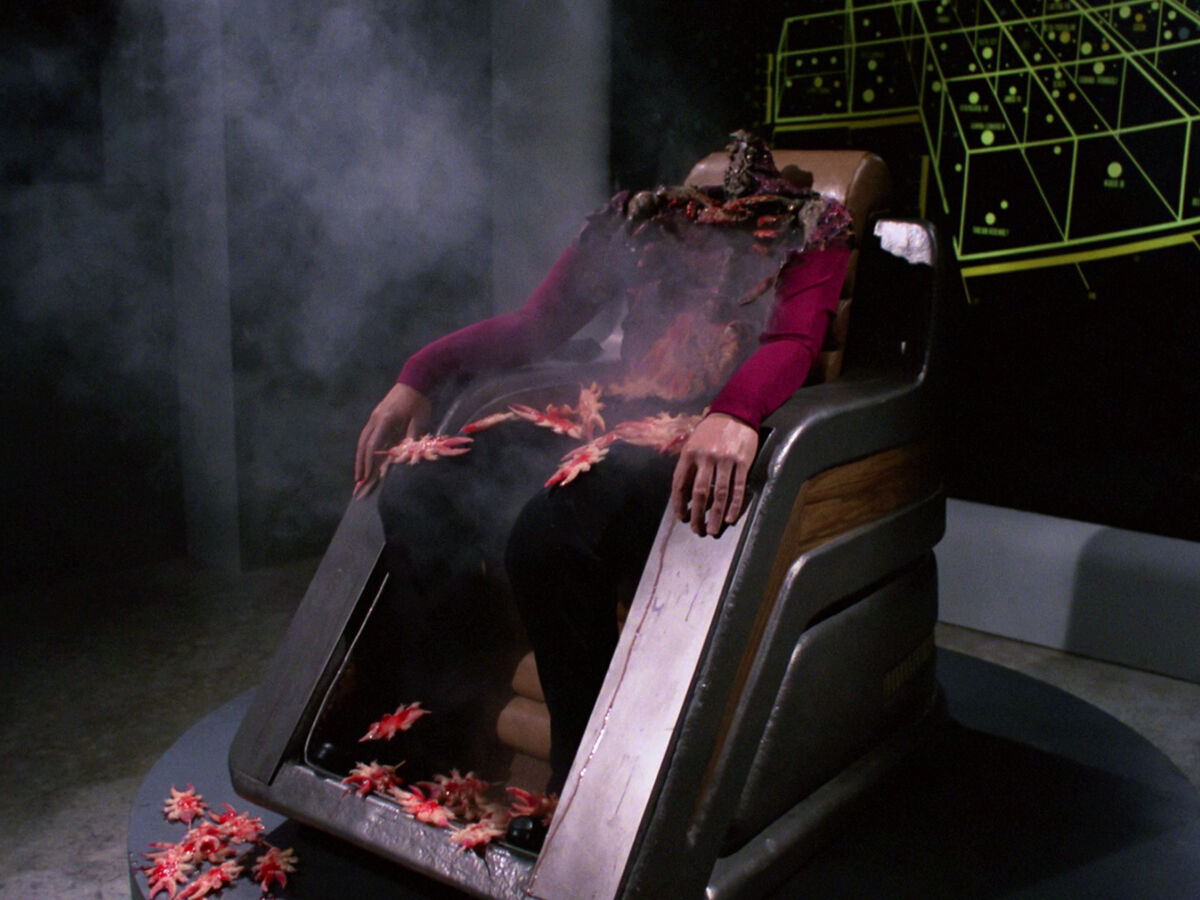
The Star Trek: The Next Generation episode “Conspiracy” features a gripping cast that brings a darker, more intense story to life. The episode centers on Captain Jean-Luc Picard and his crew as they uncover a sinister alien parasite conspiracy infiltrating Starfleet’s highest ranks. Patrick Stewart leads as Picard, supported by Jonathan Frakes as Commander Riker, LeVar Burton as Geordi La Forge, and Michael Dorn as Worf, among others. The guest cast includes notable actors like Andreas Katsulas as Romulan Commander Tomalak and Barbara March and Gwynyth Walsh as the Klingon sisters Lursa and B’Etor, who add depth to the political intrigue.
“Conspiracy” stands out for its graphic and suspenseful portrayal of alien parasites, a departure from the usual optimistic tone of the series. The story was originally conceived as a political thriller about internal Federation corruption but evolved into a sci-fi horror tale with alien invaders, reflecting the darker mood of the late 20th century. This episode remains memorable for its intense atmosphere and strong performances, highlighting the versatility of the Next Generation cast in handling complex, mature themes beyond typical space exploration.
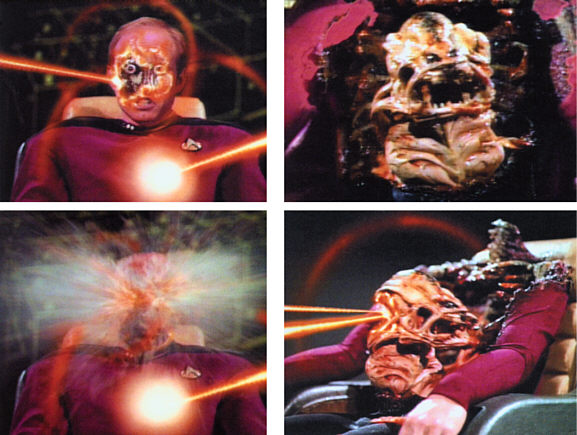
Star Trek: The Next Generation Season 1 Episode 25, titled “The Neutral Zone,” features the core cast of the series, led by Patrick Stewart as Captain Jean-Luc Picard. Alongside him are Jonathan Frakes as Commander William Riker, LeVar Burton as Lieutenant Geordi La Forge, and Michael Dorn as Lieutenant Worf. The episode also includes Gates McFadden as Doctor Beverly Crusher, Marina Sirtis as Counselor Deanna Troi, and Brent Spiner as Lieutenant Commander Data. Notably, Denise Crosby (Lieutenant Natasha ‘Tasha’ Yar) and Wil Wheaton (Wesley Crusher) receive credit only, as their characters are not active in this episode.
Guest stars add depth to the story, including Marc Alaimo as Commander Tebok, Anthony James as Sub-Commander Thei, Leon Rippy as L.Q. “Sonny” Clemonds, Gracie Harrison as Clare Raymond, and Peter Mark Richman as Ralph Offenhouse. The episode involves tense interactions with Romulan forces and the mystery of destroyed outposts near the Neutral Zone, with the cast delivering strong performances that highlight the show’s blend of diplomacy and suspense.
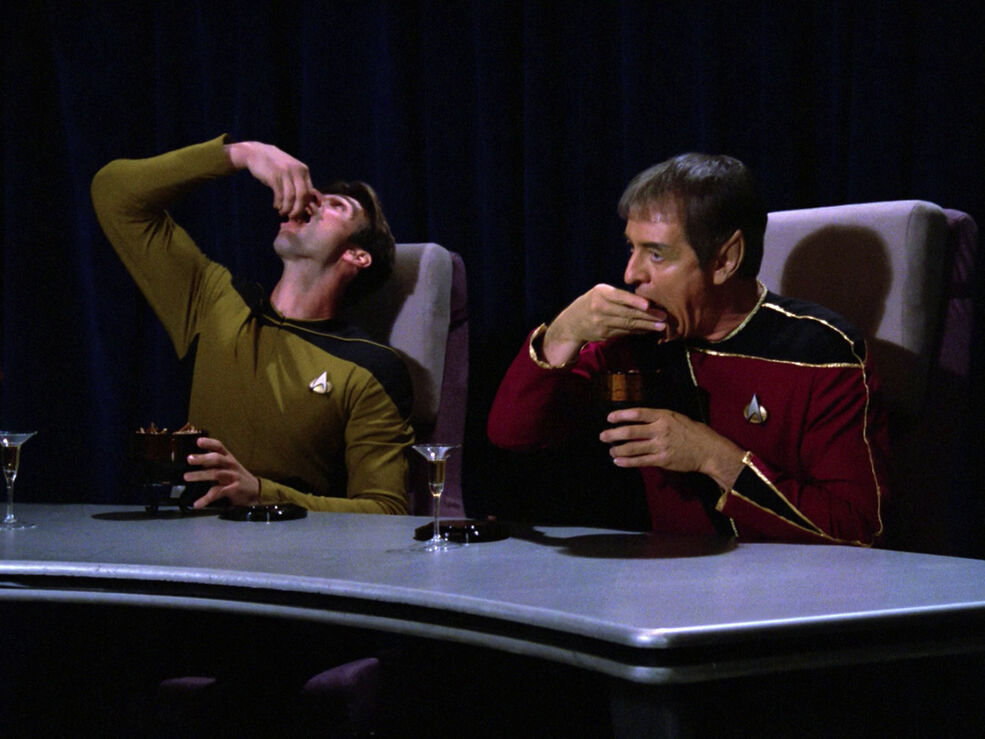
Dexter Remmick is a memorable character from Star Trek: The Next Generation, appearing as a Lieutenant Commander in the first season. Played by Robert Schenkkan, Remmick is involved in a tense episode where he encounters a mysterious alien parasite infestation. His role is quite dramatic—he tries to communicate peaceful intentions, but ultimately, he becomes host to parasitic creatures that lead to a violent confrontation with the Enterprise crew.
Remmick’s character adds a layer of intrigue and suspense, as he is both investigator and victim. He was part of the Inspector General’s office and was deeply involved in uncovering the conspiracy surrounding these parasites. Fans have speculated about his true nature and the extent of his infection, which adds to the mystery of his storyline.
Though not a main character, Remmick’s brief but impactful presence highlights the darker, more complex side of Star Trek storytelling, blending science fiction with psychological tension. His struggle with the alien infestation and his ultimate fate make him a fascinating figure for fans who enjoy the series’ exploration of trust and alien threats.
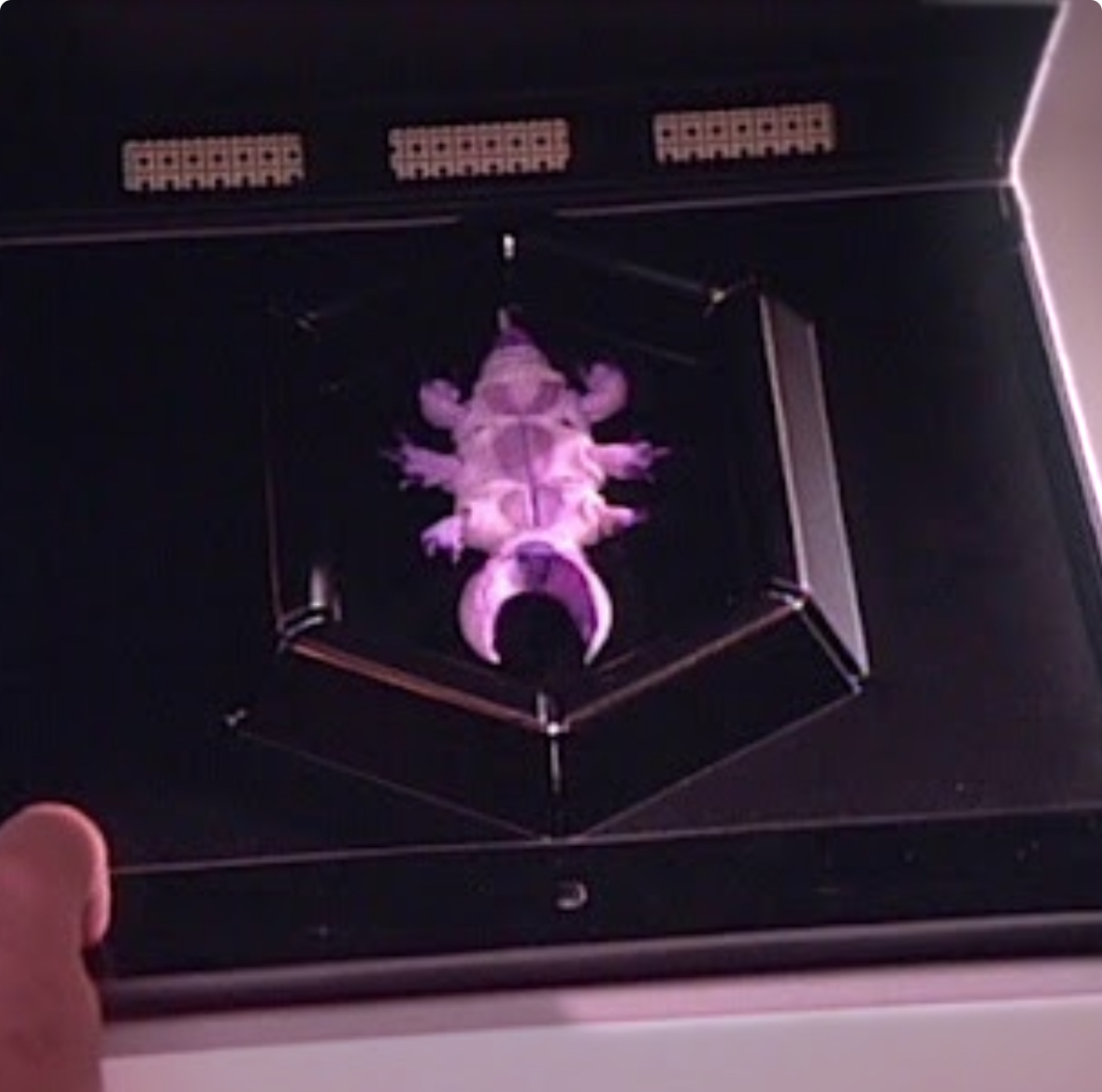
The ending of the Star Trek: The Next Generation episode “Conspiracy” is unforgettable and quite intense. After the crew uncovers a sinister plot where high-ranking Starfleet officers are possessed by parasitic aliens trying to infiltrate and take over Starfleet, they manage to stop the immediate threat. The climax features a dramatic scene where an alien parasite bursts out of a commander’s chest, only to be swiftly destroyed by Picard and Riker. However, just when you think the danger is over, the episode closes on a chilling note: the parasite transmits a mysterious signal into deep space before dying. This signal is implied to be a call for help or reinforcements, which fans have connected to the Borg, setting up a larger threat in the Star Trek universe.
Despite this ominous ending, the storyline was never fully revisited in the series, leaving fans wondering about the fate of the conspiracy and the parasites. Many feel the episode had potential for a darker, more suspenseful arc involving trust and infiltration within Starfleet, but it ultimately shifted focus to the Borg as the major adversary. The “Conspiracy” ending remains a memorable and eerie moment in TNG history, blending horror elements with sci-fi intrigue.
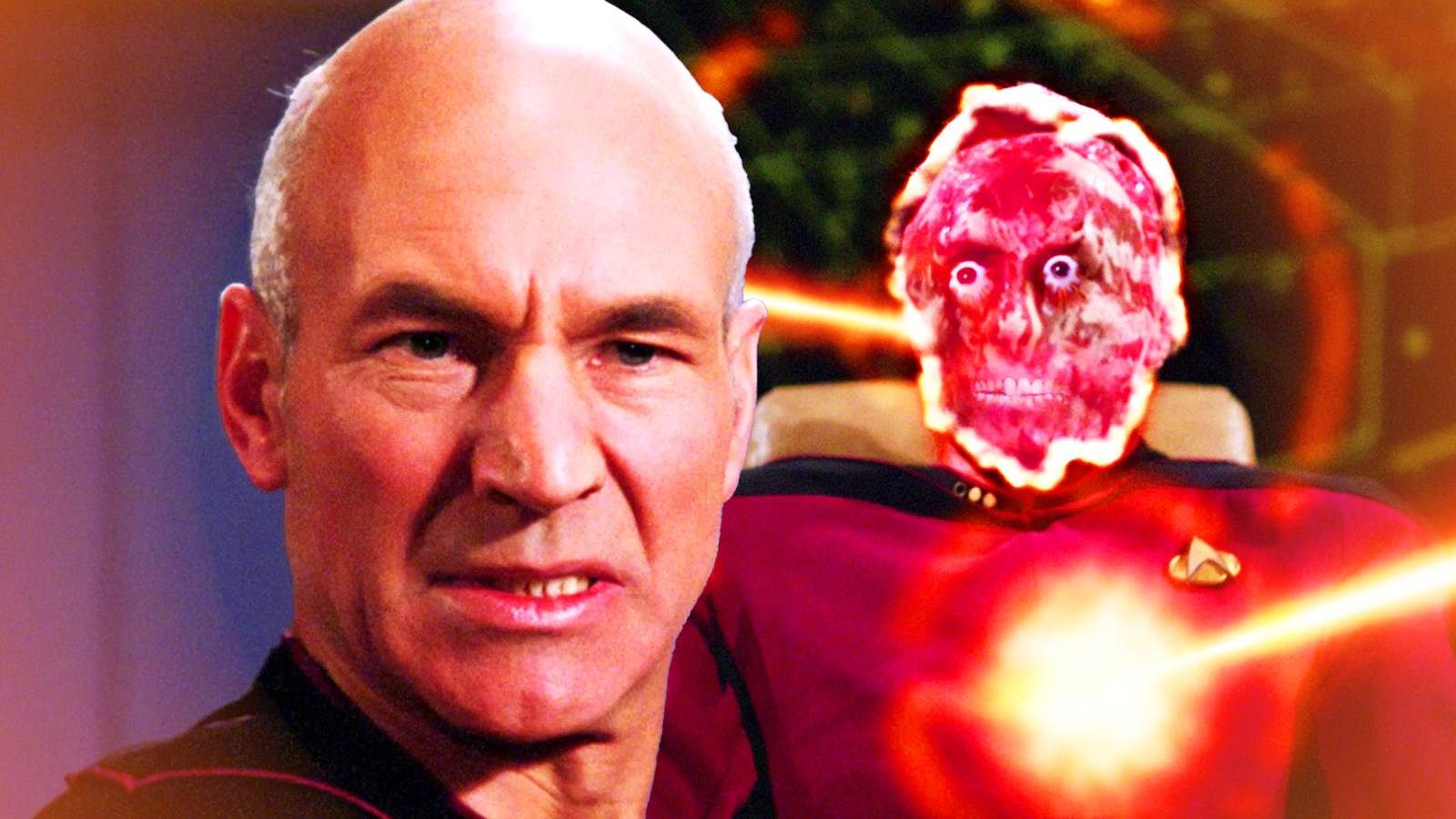
The Star Trek: The Next Generation episode “Conspiracy” is a standout for its darker, more intense tone compared to the usual series fare. It revolves around Captain Picard uncovering a sinister plot where high-ranking Starfleet officers are secretly taken over by parasitic aliens planning to invade the Federation. This episode is notable for its suspenseful story and surprisingly graphic makeup effects, including an infamous exploding head scene that used raw meat for realism. Despite initial concerns about the violence, it aired uncut in the U.S. and has since become a fan favorite, even winning a Primetime Emmy Award for its first season.
Fans often wish there had been a sequel or follow-up to “Conspiracy” because it introduced a compelling threat that was never fully explored again. The story ends somewhat abruptly, leaving many questions about the wider implications within Starfleet and the Federation. Behind the scenes, creative conflicts and Gene Roddenberry’s resistance to ongoing continuity may have prevented a direct sequel or deeper exploration of the conspiracy plotline. Still, “Conspiracy” remains a memorable, unique episode that stands out for its thriller-like vibe and bold storytelling in the Star Trek universe.
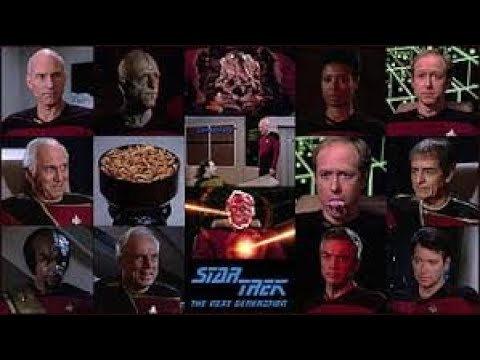
If you’re diving into the Star Trek: The Next Generation (TNG) fandom on Reddit, you’ll find some fascinating discussions around the episode “Conspiracy.” This episode, from the first season, stands out because it explores a darker, more intense storyline involving parasitic aliens secretly infiltrating Starfleet’s highest ranks. Fans on Reddit love dissecting its themes of hidden control and covert manipulation, which resonate with classic conspiracy theory vibes. The episode is often praised for its suspense and boldness, even though some viewers find its portrayal of the alien “mother” figure a bit dated or stereotypical.
On Reddit, conversations often blend the episode’s plot with real-world conspiracy theories, sparking creative fan theories about secret alien influences within the Star Trek universe. It’s a great example of how sci-fi can inspire imaginative speculation and debate. Many fans appreciate how “Conspiracy” pushes the boundaries of TNG’s usual tone, making it a memorable and sometimes polarizing highlight. Whether you’re a casual viewer or a hardcore Trekkie, the Reddit community’s take on this episode adds a fun layer of intrigue and analysis to the Star Trek experience.
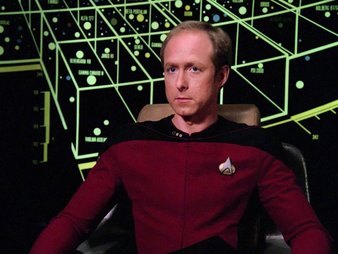
In conclusion, “Star Trek: The Next Generation” explores profound themes through its riveting “Conspiracy” episode, showcasing the struggle against hidden machinations within the Federation. This story not only emphasizes the importance of vigilance and integrity in leadership but also serves as a reminder of the often unseen forces that can threaten unity and peace. By intertwining science fiction elements with social commentary, the episode invites viewers to reflect on real-world issues of power and control. Ultimately, “Conspiracy” stands as a compelling narrative that reinforces the enduring legacy of Star Trek in challenging viewers to question authority and seek the truth.